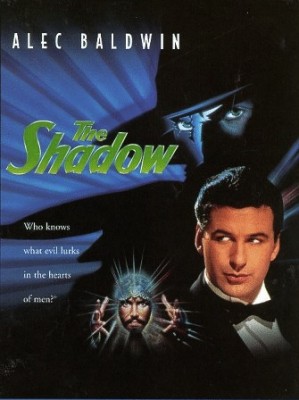
This Chronicle of Higher Education article, “The Shadow Scholar”, was posted to a friend’s Facebook wall yesterday and I’ve been enjoying the fracas in the comments {I personally love the grammar pedants}, which are more interesting than the article itself. The article does know its audience and how to extract the most emotion and righteous indignation from those in the ivory tower and the blowback from those who realize that the institution of higher learning is what it is—increasingly, a business.
The article is written in half-sneer {hint:: all part of the formula} that chronicles an academic mercenary’s career path and his work of crafting prose and poetry for those with ambitions beyond their abilities. Perhaps this is part of a trajectory of a more egalitarian system that is open not just to those with pedigrees, but to those who, let’s face it…can navigate the system. The article describes the clients who are desperate and willing to pay to get through their academic hurdles, from admissions essays to doctoral dissertations. He points the finger squarely at acadème itself, which is bound to raise hackles. He takes direct aim on the field of education::
“I, who have no name, no opinions, and no style, have written so many papers at this point, including legal briefs, military-strategy assessments, poems, lab reports, and, yes, even papers on academic integrity, that it’s hard to determine which course of study is most infested with cheating. But I’d say education is the worst. I’ve written papers for students in elementary-education programs, special-education majors, and ESL-training courses. I’ve written lesson plans for aspiring high-school teachers, and I’ve synthesized reports from notes that customers have taken during classroom observations. I’ve written essays for those studying to become school administrators, and I’ve completed theses for those on course to become principals. In the enormous conspiracy that is student cheating, the frontline intelligence community is infiltrated by double agents. (Future educators of America, I know who you are.)”
Then, there’s this wry observation::
“The 75-page paper on business ethics ultimately expanded into a 160-page graduate thesis, every word of which was written by me. I can’t remember the name of my client, but it’s her name on my work. We collaborated for months. As with so many other topics I tackle, the connection between unethical business practices and trade liberalization became a subtext to my everyday life.”
I think many in acadème have stories of know of less than honourable behaviour by colleagues and acquaintances. I know of a Masters of Healthcare Administration student, at a large public university in California, who graduated after submitting a thesis with statistical analyses he outsourced but was clueless with respect to what the printouts meant. More disconcerting was the fact that he didn’t have a clue on what consisted of an interesting research question, let alone how one would go about crafting a research design. His advisor gave him comments, but the student quickly deleted them off of his Blackberry—a combination of “who cares, I passed” and a gnawing sense of inadequacy, as this student wasn’t accustomed to receiving anything but high praise for his work and knew he just “got by”. The advisor could have held up his degree, but that would just mean more work and I’m sure he his plate was full.
Regarding academic scholarship, I know of questionable tactics regarding authorship played by those navigating the tenure game. Grad students get shafted, coauthors get dumped. I think it would be naïve to believe that there aren’t mercenaries out there helping the ambitious get tenure and promotion, ghostwriting books, chapters, and solo-authored articles.
Is higher education broken and, if so, why?
Well, higher education is a business, but it also is one of the last, enduring feudal systems. I feel this combination is a recipe for disaster in these late-modern times. Being a business, colleges and universities need to profit maximize, but are also tied to a more feudal tradition, with concepts like honour and mentorship are regarded highly. I recall being in a business faculty meeting and we were discussing ethics and cheating in the classroom. Talk was circulated on how Chinese students often see “cheating” as part of business and defended their actions as learning how to game the system. Well, if you think about it, gaming the system in varying degrees is what we’re all being taught—it’s what’s rewarded in our everyday lives.
Entrepreneurs are often celebrated in our culture, as risk taking mavericks that innovate and create new paradigms, Schumpeterian growth, and wealth. Take a look at this TED talk with entrepreneur Cameron Herold::
About 5 minutes in, he freely admits to cheating and having others do his accounting assignments at Carleton. His take is that entrepreneurs don’t do accounting, they hire accountants. It’s all about figuring out the system and gaming it. Sounds like those accounts of what the Chinese students were allegedly saying. Getting back to the original article, one commenter {3. skaking} makes a good point about whether the author’s services are in less demand where there’s an emphasis on education, not evaluation. Getting back to business side, the question is whether or not there’s a market for truly “educated” students versus “evaluated” ones. I’m not so sure there is, but I hope one can be developed. It should be a charge of higher education to make this happen.
Twitterversion:: [blog] Commentary on “The Shadow Scholar” article in The Chronicle of Higher Educ. Plagiarism, feudalism, & capitalism http://url.ie/86an @ThickCulture @Prof_K
